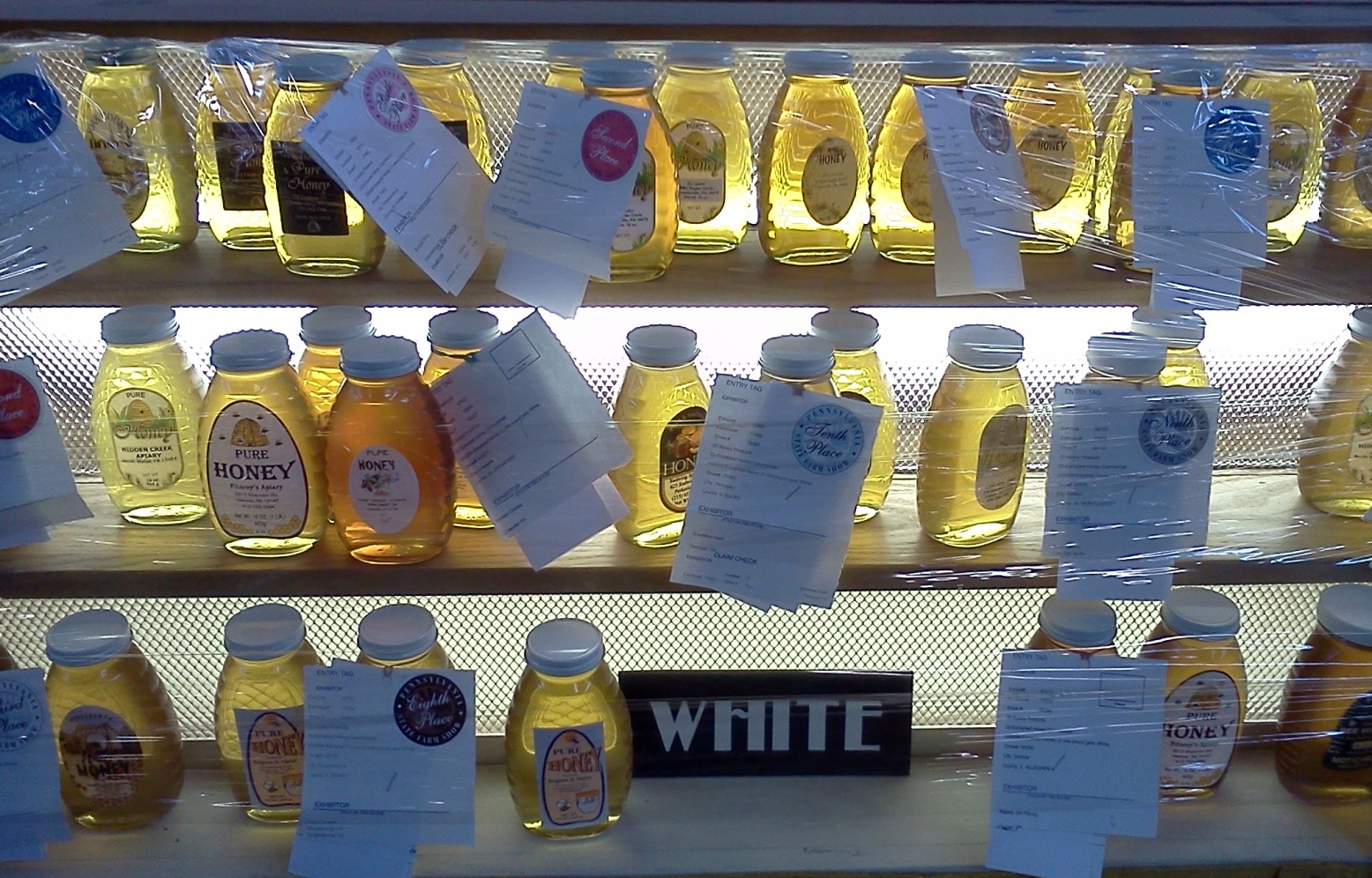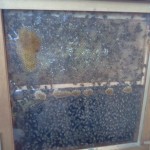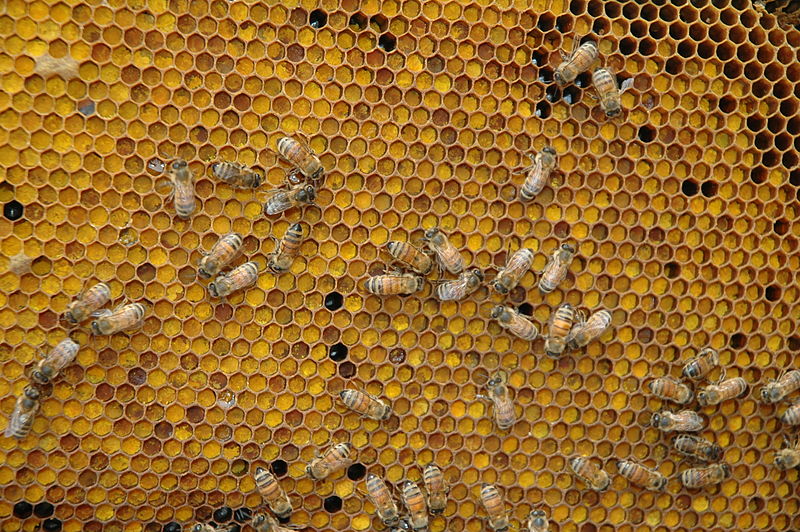Apiary Products Create Farm Show Buzz
Producing honey is hard work for both the people and the bees, according to Charlie Vorisek of Crawford County, Vice President of the Pennsylvania State Beekeepers Association. “One pound of honey is representative of about two million flowers,” Vorisek says. Beekeepers use a special machine to extract the honey from the wooden frames where bees build their hives. “I describe it like a washing machine spin cycle… we spin it and the honey will fling out just like the water in your clothes.”
PA Beekeepers are conducting honey extraction demonstrations all week long at the 96th Pennsylvania Farm Show. A variety of displays in the Main Hall help people to understand the importance of pollination, and the Pennsylvania State Beekeepers Association booth is always buzzing with activity in the Farm Show’s PA Marketplace.
That’s where consumers go to buy pure, raw, natural honey, according to beekeeper David Anderson of Lebanon County. “Depending on the flower that the nectar came from to make the honey you can get clover honey, alfalfa honey, buckwheat honey, wildflower honey – and there are all different flavors”
Each hive is home to just one queen. Her job is solely to lay eggs, as presenters told one demonstration crowd that the queen must lay 2,000 or more eggs a day for a hive to be productive.
Farm Show judges awarded prizes in more than 40 categories of apiary products – everything from three pound chunks of comb honey, to honey quick breads and candies. Pennsylvania is home to 2,500 registered beekeepers. Many are commercial enterprises, but officials say most are hobby beekeepers.




